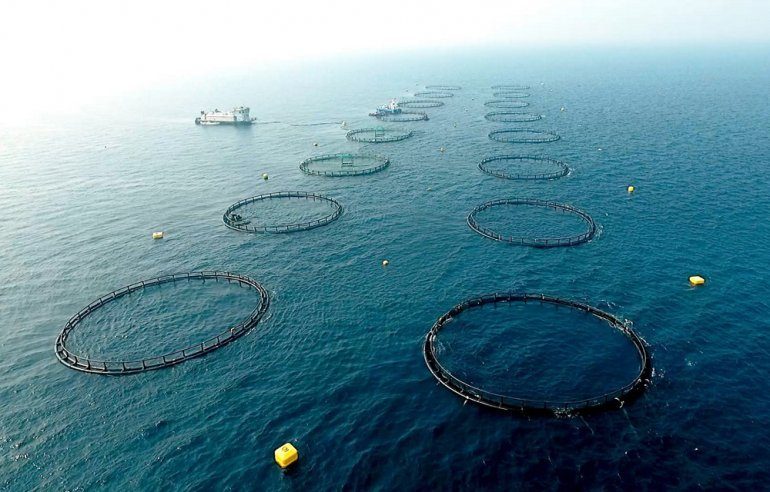Qatari initiatives to expand fish farming in Gulf waters are hoped to prevent the depletion of resources caused by the impact of climate change.
Depletion of fishery stocks has prompted Qatar to expand fish farming efforts in offshore Gulf waters as the demand for fresh produce in local markets grows.
Damage to coral reefs caused by global warming, as well as overfishing, could potentially cause a 30% decline in future fish catch potential in Qatari waters by the end of the century, according to Research Assistant Professor at Qatar University Pedro Range.
“While fish in the Gulf have generally adapted to higher water temperatures, the frequency and scope of coral reef bleaching in recent years suggest the region is at real risk of losing its bio-diverse ecosystem in the coming decades,” he added.
According to Range, fish farm production is hoped to prevent the depletion of fish stocks in offshore waters, but if the broader international problem of overproduction of greenhouse gases that result in climate change is not dealt with, then local fish-preservation efforts will be in vain.
Read also: Qatar biggest aquaculture farming project begins producing vegetables
Last November, Qatar launched Samakna, the region’s first offshore aquaculture project in Qatar’s open water, which uses floating-cage technology.
Under Al Qamra holding, Qatar’s leading business conglomerate, Samkna is located 50 km (30 miles) offshore from Qatar’s Ruwais region and produces 2,000 tonnes of fish annually.
“We have started an expansion plan to double our production capacity to 4,000 tonnes. We are obtaining permits for the expansion and building new cages,” said operations and development director for marine aquaculture at Al-Qumra Mahmoud Tahoun.
“Five years from now, we expect to cover 60% of local demand.”







